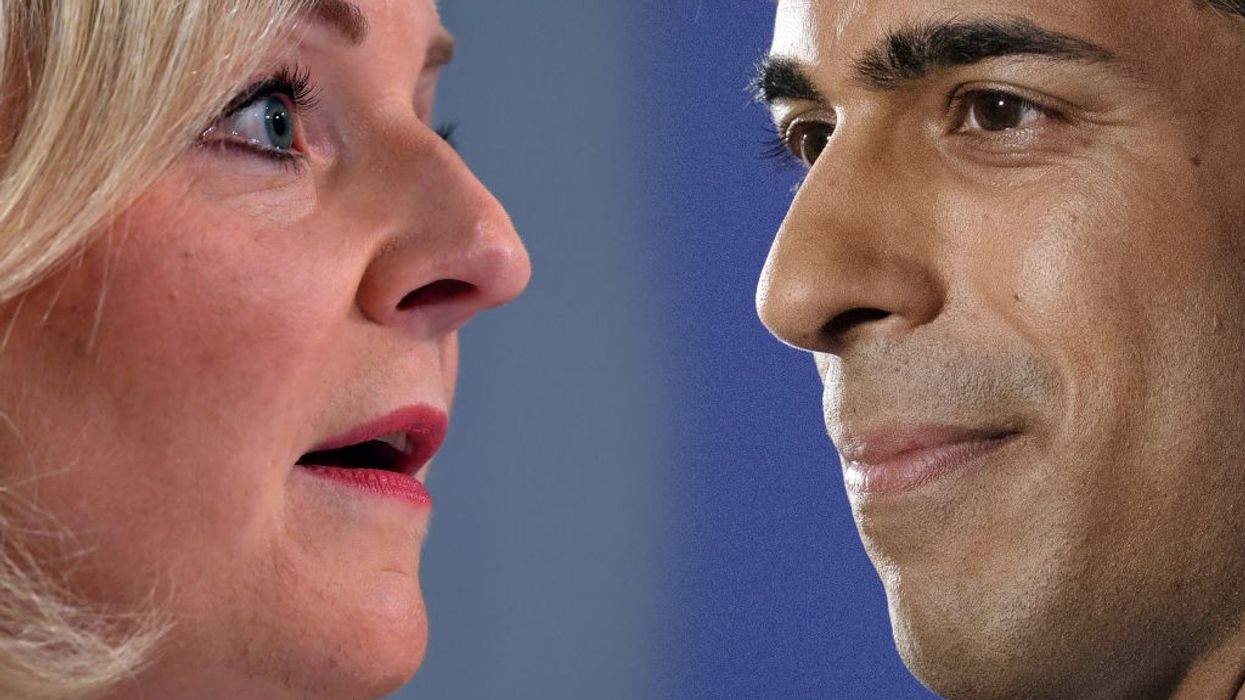The bruising race between Rishi Sunak and Liz Truss to become Britain's next prime minister steps up a gear on Monday with the mailing out of ballots to Conservative party members.
With voting set to begin to find Boris Johnson's replacement, bookmakers have Foreign Secretary Truss as heavy favourite ahead of former finance minister Sunak.
The pair have already spent a fractious two weeks on the campaign trail, where they have clashed repeatedly, particularly over their economic plans.
Truss has promised to slash taxes in an attempt to revive Britain's spluttering economy and ease the burden of spiralling prices.
Sunak, who steered the UK economy through the pandemic, said Truss's plans were "fantasy economics" that would fuel inflation and heap further strain on public finances struggling to recover from the pandemic.
But trailing in polls with the all-important party members, Sunak last week performed a significant U-turn by announcing a plan to scrap VAT on energy bills.
And on Sunday he promised to cut the basic rate of income tax by 20 percent before the end of the next parliament, which would be December 2029, at the latest.
He promised grassroot Tories over the weekend that he would stop "woke nonsense" and "end the brainwashing" if he becomes prime minister, although added he has "zero interest in fighting a so-called culture war".
The 42-year-old also unveiled plans to revive the country's ailing town centres.
"I want to slash the number of empty shops by 2025 and make sure that they are turned into thriving local assets," he said.
"I will also crack down on anti-social behaviour, graffiti and littering – through extended police powers and increased fines."
- Dirty tricks -
The pair faced their first grilling in front of members on Thursday, the first of 12 nationwide events before Johnson's successor is announced on September 5.
Truss received a boost on Friday when Defence Secretary Ben Wallace, well regarded among party members for his handling of the Ukraine crisis, pledged his support, saying she was the "only candidate who has both the breadth and depth of experience needed".
Her tax pledges also helped her secure the support of former leadership contender Tom Tugendhat, who holds sway among the party's centrists.
Despite the high-level endorsements, Truss insisted it remained a "very, very close race."
Sunak, whose resignation from Johnson's scandal-hit government played a key role in bringing about the prime minister's downfall, has admitted that he is the "underdog" in the contest.
The pair's two televised head-to-head debates have both been combative, and the race has often turned personal.
Wealthy former financier Sunak hit back at caustic attacks from the Truss camp about his expensive tastes in fashion, which purportedly show that he is out of touch with the ordinary public in hard times.
"This is not about what shoes I wear or what suit I'm wearing.
"This is about what I'm going to do for the country," Sunak told members, earning applause, although he was also accused by one questioner of "stabbing Boris Johnson in the back".
Sunak's campaign has also complained of dirty tricks, calling for "full and proper investigations" into the "continued and deliberate leaking of government documents" that have dogged his bis bid.
Truss meanwhile was reminded at the hustings of her opposition to Brexit in 2016, and her student leadership of the Liberal Democrats at the University of Oxford, when she called for the abolition of the monarchy.
"Almost as soon as I made the (monarchy) speech, I regretted it," she said. "I was a bit of a teenage controversialist."
(AFP)




